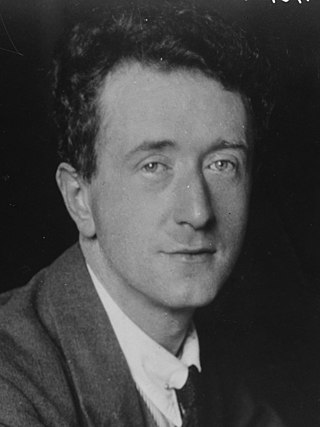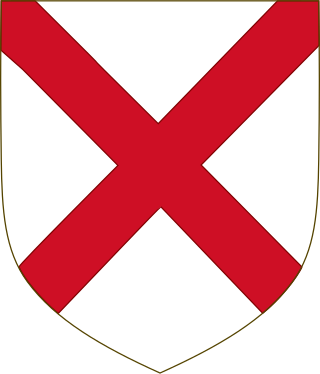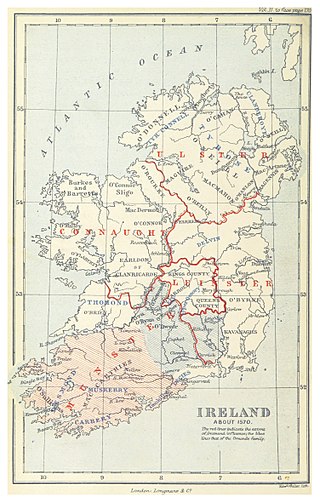This article needs additional citations for verification .(February 2024) |
| |||||
| Centuries: | |||||
|---|---|---|---|---|---|
| Decades: | |||||
| See also: | Other events of 1533 List of years in Ireland | ||||
Events from the year 1533 in Ireland.
This article needs additional citations for verification .(February 2024) |
| |||||
| Centuries: | |||||
|---|---|---|---|---|---|
| Decades: | |||||
| See also: | Other events of 1533 List of years in Ireland | ||||
Events from the year 1533 in Ireland.
Barry Desmond is an Irish former Labour Party politician who was Minister for Health from 1982 to 1987 and Minister for Social Welfare from 1982 to 1986. He served as a Teachta Dála (TD) from 1969 to 1989, a Minister of State from 1981 to 1982, a Member of the European Parliament (MEP) for Dublin from 1989 to 1994, and Ireland's member of the European Court of Auditors from 1994 to 2000.

Earl of Desmond is a title in the peerage of Ireland which has been created four times since 1329. The title was first awarded to Maurice FitzGerald, 4th Baron Desmond, a Hiberno-Norman lord in Southwest Ireland, and it was held by his descendants until 1583 when they rose against the English crown in the Desmond Rebellions. Following two short-lived recreations of the title in the early 1600s, the title has been held since 1628 by the Feilding family of Warwickshire, England. The current holder is Alexander Feilding, 12th Earl of Denbigh and 11th Earl of Desmond.

Desmond FitzGerald was an Irish revolutionary, poet, publicist and Fine Gael politician who served as Minister for Defence from 1927 to 1932, Minister for External Affairs from 1922 to 1927, Minister for Publicity from 1921 to 1922 and Director of Publicity from 1919 to 1921. He served as a Teachta Dála (TD) from 1918 to 1937. He was a Senator for the Administrative Panel from 1938 to 1943.

The Kingdom of Desmond was a historic kingdom in southwestern Ireland. It was founded in 1118 by Tadhg Mac Cárthaigh, King of Munster when the Treaty of Glanmire formally divided the Kingdom of Munster into Desmond and Thomond. It comprised all of what is now County Cork and most of County Kerry. Desmond was ruled by the Mac Cárthaigh (MacCarthy) dynasty. Other clans within the kingdom included the O'Sullivans and O'Donovans. Following the Norman invasion of Ireland in the late 12th century, the eastern half of Desmond was conquered by the Anglo-Normans and became the Earldom of Desmond, ruled by the Fitzmaurices and FitzGeralds—the famous Irish family known as the Geraldines. The king of Desmond, Diarmaid Mac Cárthaigh submitted to Henry II of England, but the western half of Desmond lived on as a semi-independent Gaelic kingdom. It was often at war with the Anglo-Normans. Fínghin Mac Carthaigh's victory over the Anglo-Normans at the Battle of Callann (1261) helped preserve Desmond's independence. The kings of Desmond founded sites such as Blarney Castle, Ballycarbery Castle, Muckross Abbey and Kilcrea Friary. Following the Nine Years' War of the 1590s, Desmond became part of the Kingdom of Ireland.

The FitzGerald dynasty is a Hiberno-Norman noble and aristocratic dynasty, originally of Cambro-Norman and Anglo-Norman origin. They have been peers of Ireland since at least the 13th century, and are described in the Annals of the Four Masters as having become "more Irish than the Irish themselves" or Gaels, due to assimilation with the native Gaelic aristocratic and popular culture. The dynasty has also been referred to as the Geraldines and Ireland's largest landowners. They achieved power through colonisation and the conquest of large swathes of Irish territory by the sons and grandsons of Gerald de Windsor. Gerald de Windsor was the first Castellan of Pembroke Castle in Wales, and became the male progenitor of the FitzMaurice and FitzGerald Dynasty. His father, Baron Walter FitzOther, was the first Constable and Governor of Windsor Castle for William the Conqueror, and was the Lord of 38 manors in England, making the FitzGeralds one of the "service families" on whom the King relied for his survival.

The Desmond Rebellions occurred in 1569–1573 and 1579–1583 in the Irish province of Munster. They were rebellions by the Earl of Desmond, the head of the FitzGerald dynasty in Munster, and his followers, the Geraldines and their allies, against the threat of the extension of the English government over the province. The rebellions were motivated primarily by the desire to maintain the independence of feudal lords from their monarch but also had an element of religious antagonism between Catholic Geraldines and the Protestant English state. They culminated in the destruction of the Desmond dynasty and the plantation or colonisation of Munster with English Protestant settlers. 'Desmond' is the Anglicisation of the Irish Deasmumhain, meaning 'South Munster'.

Gerald FitzGerald, 14th Earl of Desmond, also counted as 15th or 16th, owned large part of the Irish province of Munster. In 1565 he fought the private Battle of Affane against his neighbours, the Butlers. After this, he was for some time detained in the Tower of London. Though the First Desmond Rebellion took place in his absence, he led the Second Desmond Rebellion from 1579 to his death and was therefore called the Rebel Earl. He was attainted in 1582 and went into hiding but was hunted down and killed.
James FitzGerald or James Fitzgerald may refer to:
James fitz Maurice FitzGerald, called "fitz Maurice", was a native Irish and Anglo-Norman captain-general of Desmond while Gerald FitzGerald, 14th Earl of Desmond, was detained in England by Queen Elizabeth after the Battle of Affane in 1565. He led the first Desmond Rebellion in 1569 and was sometimes called the "Archtraitor" by the English. He surrendered in 1573, prostrating himself in Kilmallock church before John Perrot, president of Munster.

Gerald FitzMaurice FitzGerald (1335–1398), also known by the Irish Gaelic Gearóid Iarla, was the 3rd Earl of Desmond, in southwestern Ireland, under the first creation of that title, and a member of the Anglo-Norman dynasty of the FitzGerald, or Geraldines. He was the son of Maurice FitzGerald, 1st Earl of Desmond, by his third wife Aveline (Eleanor), daughter of Nicholas FitzMaurice, 3rd Lord of Kerry. He was half-brother to Maurice FitzGerald, 2nd Earl of Desmond.
The Second Desmond Rebellion (1579–1583) was the more widespread and bloody of the two Desmond Rebellions in Ireland launched by the FitzGerald Dynasty of Desmond in Munster against English rule. The second rebellion began in July 1579 when James FitzMaurice FitzGerald landed in Ireland with a force of Papal troops, triggering an insurrection across the south of Ireland on the part of the Desmond dynasty, their allies, and others who were dissatisfied for various reasons with English government of the country. The rebellion ended with the 1583 death of Gerald FitzGerald, 14th Earl of Desmond, and the defeat of the rebels.
Events from the year 1261 in Ireland.
Events from the year 1579 in Ireland.
Events from the year 1418 in Ireland.
Events from the year 1487 in Ireland.
Events from the year 1491 in Ireland.
Events from the year 1345 in Ireland.
Events from the year 1583 in Ireland.
Events from the year 1574 in Ireland.

Thomas FitzJames FitzGerald, 7th Earl of Desmond, called 'Thomas of Drogheda', and also known as the Great Earl, was the son of James FitzGerald, 6th Earl of Desmond and Mary de Burgh. He was Lord Deputy of Ireland under the Lieutenancy of Duke of Clarence from 1463 to his death, and in 1464 founded the College of Youghal. His plan to found a University at Drogheda failed due to his judicial assassination.